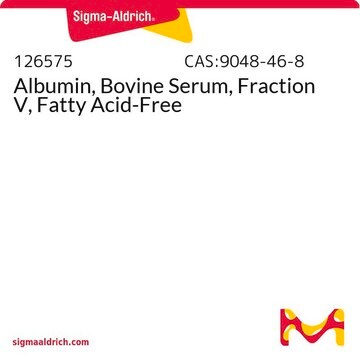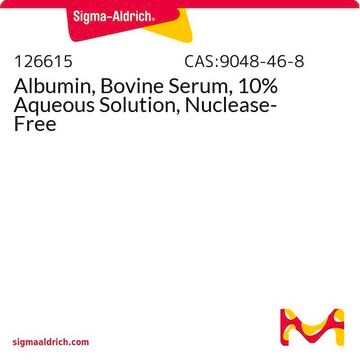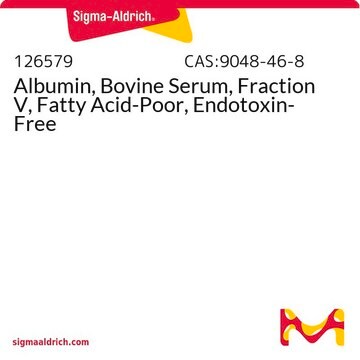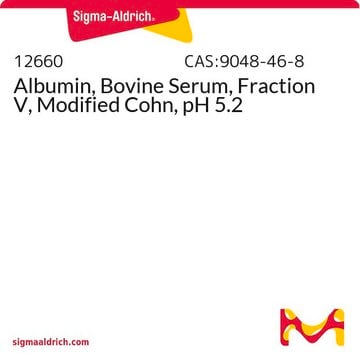126609
Albumin, Bovine Serum, Fraction V, Fatty Acid-Free, Nuclease- and Protease-Free
BSA Fatty Acid-free is designed for use in serological testing, RIA, and hormone response studies. Suitable for use in Molecular Biology applications, such as Northern and Southern blots.
Synonym(s):
Albumin, Bovine Serum, Fraction V, Fatty Acid-Free, Nuclease- and Protease-Free
About This Item
Recommended Products
Quality Level
Assay
≥98% (SDS-PAGE)
form
solid
manufacturer/tradename
Calbiochem®
storage condition
OK to freeze
impurities
≤0.02% fatty acids
≤3.0% Ash
≤5% moisture
color
off-white to beige
solubility
0.15 M sodium chloride: 10 mg/mL
water: 10 mg/mL
cation traces
heavy metals: ≤10 ppm
foreign activity
endonuclease, none detected
protease ≤0.1 U/mg
shipped in
ambient
storage temp.
2-8°C
Related Categories
General description
Warning
Reconstitution
Other Notes
Legal Information
Storage Class Code
11 - Combustible Solids
WGK
WGK 1
Flash Point(F)
Not applicable
Flash Point(C)
Not applicable
Certificates of Analysis (COA)
Search for Certificates of Analysis (COA) by entering the products Lot/Batch Number. Lot and Batch Numbers can be found on a product’s label following the words ‘Lot’ or ‘Batch’.
Already Own This Product?
Find documentation for the products that you have recently purchased in the Document Library.
Customers Also Viewed
Our team of scientists has experience in all areas of research including Life Science, Material Science, Chemical Synthesis, Chromatography, Analytical and many others.
Contact Technical Service










